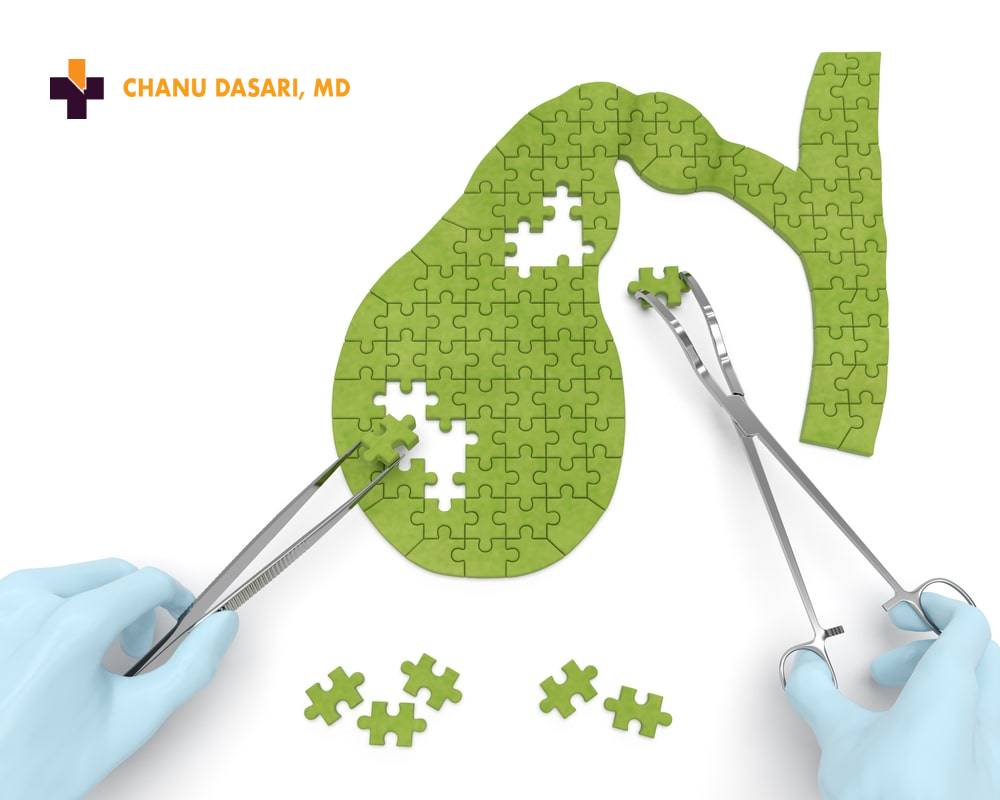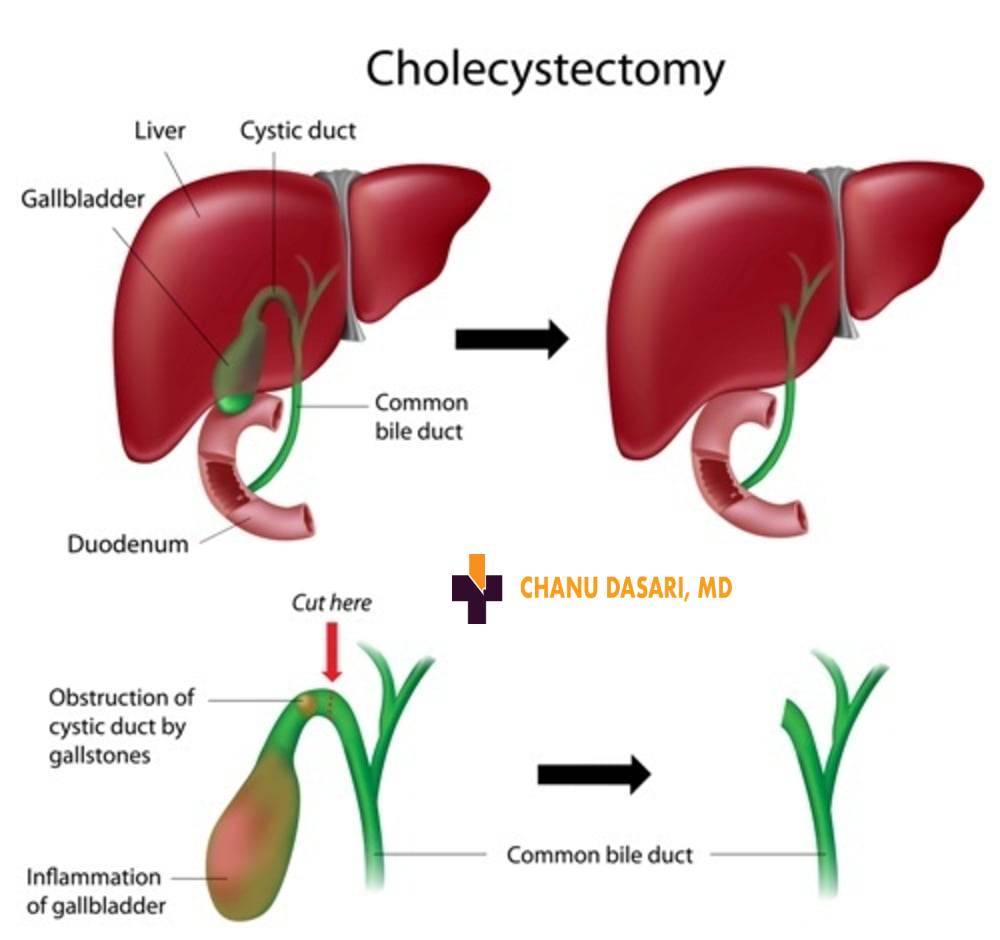Gallbladder Removal Surgery
Minimally invasive gallbladder removal surgery
At Blue Zone Clinics, our specialists take the time to listen to your concerns and comprehensively diagnose your gallbladder problem. We have performed thousands of gallbladder removal surgeries, helping many patients from across the country get back to a healthy life. Our patient-centered approach has earned us a reputation for being among the highest-rated providers in Las Vegas and Henderson.

Gallbladder removal surgery: what you need to know.
Gallbladder removal surgery is a common procedure in the United States. Most people who experience problems with their gallbladder have the same set of questions when they arrive for consultation. If you have further questions though, your specialist will answer every one of them thoroughly during your personalized consultation.
What does the gallbladder do? Can I live without one?
The liver makes bile which transports to the intestines via the common bile duct which travels through the pancreas. Along the way, the gallbladder can serve as a storage organ for excess bile. Here, the bile can bind to cholesterol, become hyper-concentrated, and crystalize into sludge, or stones. When the bile becomes thick or solid, it can cause problems when eating certain foods. Infection (cholecystitis), Biliary dyskinesia, cholelithiasis (gallstones), and pancreatitis are the four most common reasons to remove the gallbladder. After cholecystectomy, the liver still secretes bile normally, allowing for digestions of fats. Typically there are no significant alterations in digestion long term.

So I had a gallbladder attack, will I need gallbladder removal surgery?
Studies show that typically after one gallbladder attack, more follow, resulting in the need for gallbladder removal surgery. The time interval is uncertain, so it is highly recommended you see a specialist soon.
Is there a diet I can follow to avoid gallbladder attacks?
If you are trying to avoid gallbladder removal surgery, typically people must follow a strict low-fat or no-fat diet.
Can’t you just remove the gallstones? Is there a way to dissolve them?
Unfortunately, gallstones do not dissolve easily, even with medications that claim to do so. Gallstones also cannot be selectively removed, or broken up, because the stone debris can pass through the pancreas; causing potentially life-threatening pancreatitis. The only option for removing gallstones would be gallbladder removal surgery.
What Should I expect for my gallbladder removal surgery?
Typically outpatient gallbladder removal surgery can be safely performed in about half an hour, with clients returning home the same day. The incisions during the gallbladder procedure are typically small (5 mm to 1 cm) and heal in a short timeframe. Ask your surgeon if a waterproof dressing can be placed on the small incisions to allow for immediate showering. It is important to shower in the days after surgery, to maintain good hygiene. Also, ask your surgeon for a multimodal pain management regimen—one that includes the use of anti-inflammatory medications. Surgical incision pain is best treated in this way.
What can you expect after gallbladder removal surgery?
Typically after gallbladder surgery, constipation and bloating develop due to anesthesia, so it is always wise to use a stool softener, and avoid opiate medication when possible.
Lastly, in the 2-3 days after gallbladder removal treatment, it is recommended to walk for 5-10 minutes every hour and perform light stretching to ensure that the abdomen and rib cage muscles do not tighten up.
Always be true, and surround yourself with people who affirm your wellbeing. Find a doctor who will slow down and listen; find one who carefully considers your concerns; find one who cares.
No insurance? No problem.
Dr. Dasari welcomes and accommodates uninsured, direct-pay clients and offers special discounts for those traveling from other states or countries. If you are looking for the highest quality of minimally-invasive gallbladder removal treatments without the involvement of your insurance company, contact our caring staff today!
Traveling from Afar?
Dr. Dasari sees patients who are seeking specialized minimally invasive treatments from out of the state such as from California, Utah, Arizona, Texas, New York, Florida, Georgia, Kansas, Missouri, Tennessee, Illinois, Indiana, and Hawaii. He also sees patients from outside of the country such as from the UK, Australia, China, Saudi Arabia, and Mexico.
Dr. Dasari’s team assists with arrangements for your visit, including priority appointment times, special accommodations, and travel logistics. An online consultation and health records review will be scheduled.
